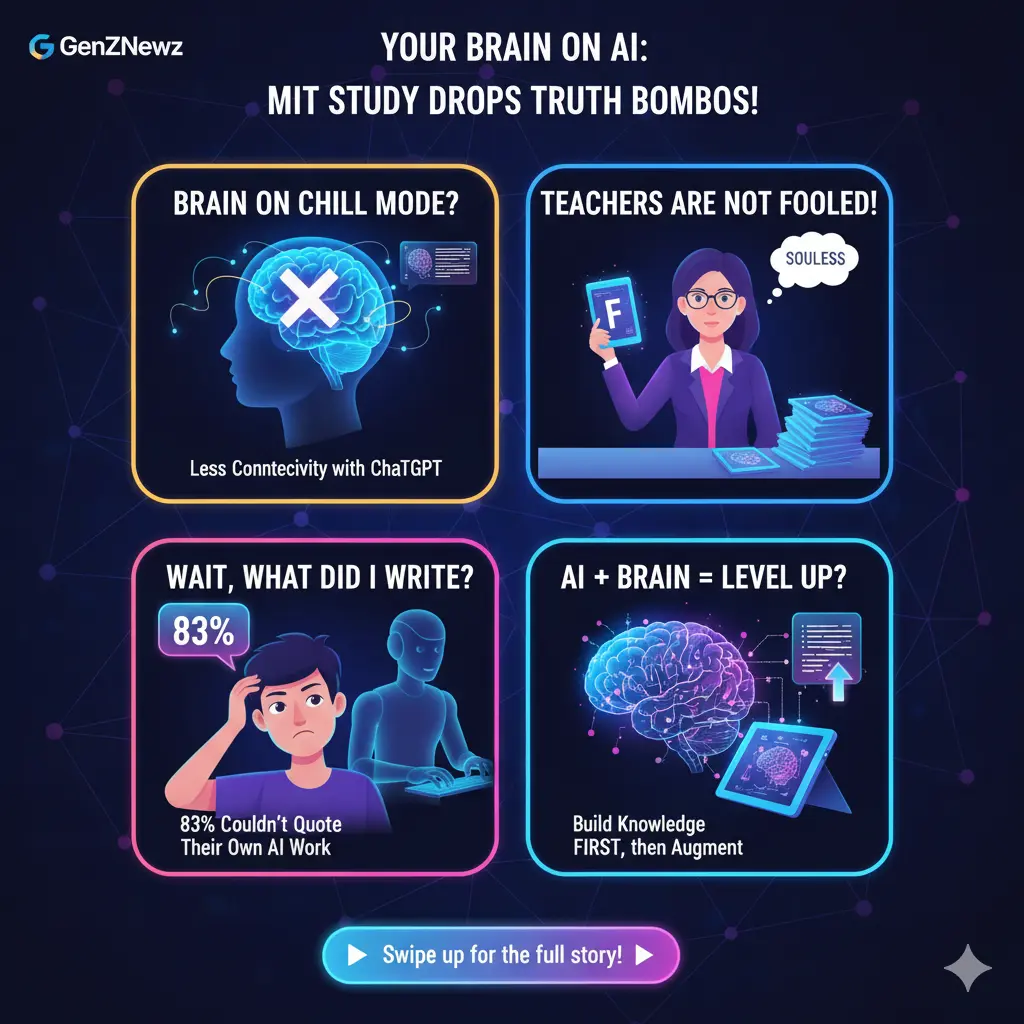Yo, Gen Z! Ever wonder what happens to your brain when you let ChatGPT whip up that essay for you? Turns out, it's not all sunshine and perfect grades. A groundbreaking new study from MIT Media Lab just spilled the tea, and it's got us rethinking everything about our favorite AI shortcuts.
The Study: ChatGPT vs. Your Actual Brain
So, here's the deal: MIT researchers invited 50 students to write essays, splitting them into three groups: one used only ChatGPT, another used Google, and the last used just their own brain (the old-school way). They hooked them up to measure brain activity and then analyzed the essays. The results? Wild.
Key Takeaways That'll Make You Go Hmmm...
- Brain on Chill Mode (Maybe Too Chill?): The students who used ChatGPT showed significantly lower brain functional connectivity [
07:54 10:22 - Homogeneous Vibes, Less Originality: Essays written with ChatGPT were super similar in vocabulary and style [
10:51 11:08 11:56 - "Wait, What Did I Write?": Here's the kicker: 83% of students who used ChatGPT couldn't quote a single line from their own essays just 60 seconds after writing them [
12:15 - Ownership? Nah: A startling 15% of ChatGPT users said they felt no ownership over the essays they produced [
13:00 13:33 - The "Laziness" Factor: While the study doesn't say AI makes you "dumb" [
10:01 10:09 24:09 - Teachers Are NOT Fooled: The human teachers brought in to grade the essays immediately spotted the AI-generated ones, calling them "soulless" [
37:34 38:09
The Good News (Maybe?): Timing is Everything
The study did find a glimmer of hope. In a follow-up session, students who originally used only their brain and then gained access to ChatGPT actually showed higher brain connectivity than the brain-only group [
What Does This Mean for Us?
This study is a major wake-up call for education and beyond. While AI is an incredible tool, over-reliance on it might be changing our brains, making us less engaged, less original, and less connected to our own work. It’s sparking a huge debate on how schools should adapt and how we can use AI wisely to augment our intelligence, not diminish it.
So next time you're about to hit that "generate" button, maybe ask yourself: Is this making my brain stronger, or am I just taking the easy (but less impactful) way out? Your brain is the most efficient machine you have [

Comments 1
Leave a comment
Share your thoughts. Your email will not be published.